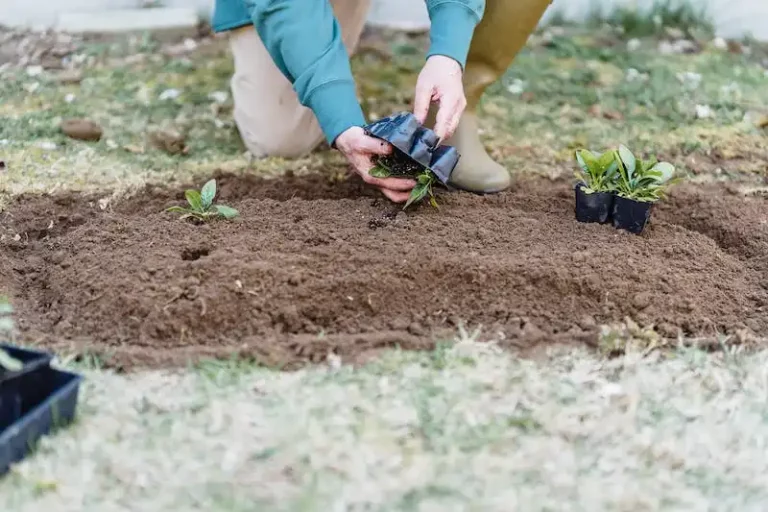While fresh herbs are a wonderful addition to any culinary dish, they can be quite challenging to store and keep fresh throughout the year. Luckily, there are several methods you can use to freeze herbs and preserve their flavors.
One of the easiest ways to freeze herbs is by using your freezer. Simply wash the herbs thoroughly and pat them dry. Then, chop or leave them as whole leaves, depending on your preference. Place the herbs in freezer-safe bags or containers, removing as much air as possible. Label the bags with the herb name and the date of freezing, and store them in the freezer.
Another method is to freeze herbs in oil. This method not only helps to preserve the freshness of the herbs but also adds convenience as you can easily grab a cube of frozen herbs and use it directly in your cooking. To do this, finely chop the herbs and mix them with olive oil or any other cooking oil of your choice. Pour the mixture into ice cube trays and freeze until solid. Once frozen, transfer the herb oil cubes into freezer-safe bags or containers for long-term storage.
If you’re looking for a way to quickly freeze herbs, you can try the microwave method. This method is suitable for herbs that will be used in cooking, such as parsley, cilantro, and chives. Simply wash and dry the herbs, then place them in a microwave-safe dish. Microwave on high for 1-2 minutes, checking at regular intervals, until the herbs are thoroughly dry. Once dry, crumble the herbs and store them in airtight containers or jars.
Lastly, drying herbs is another popular way to preserve their flavors. Hang the herbs upside down in a dry and well-ventilated area, away from direct sunlight. Once the herbs are completely dry, you can remove the leaves from the stems and store them in an airtight container. This method is especially useful for herbs like chives, as they can be easily dried and stored for later use.
By utilizing these freezing and drying methods, you can enjoy the freshness of your garden herbs all year round. Whether you choose to freeze them in your freezer, preserve them in oil, microwave them for quick preservation, or dry them for long-term storage, you’ll find that these techniques will help you keep your herbs flavorful and ready to use whenever you need them.
How to Freeze Fresh Herbs as Leaves and Ice Cubes
Freezing fresh herbs is a great way to preserve the flavors of your sturdy garden herbs for use in sauces, stews, and other dishes throughout the winter or anytime you need them. There are a few different ways you can freeze fresh herbs, so let’s learn about the best methods.
Freezing Herbs as Leaves
The first method involves washing the herbs and removing any stems or damaged leaves. Pat the herbs dry and pack them loosely into plastic bags or airtight containers. You can also mix the herbs with some oil to help preserve their freshness. Label the bags or containers with the herb name and date before placing them in the freezer. When you’re ready to use the herbs, simply take them out and dice or crush as needed.
Freezing Herbs in Ice Cubes
Another popular way to freeze fresh herbs is by making herb ice cubes. This method is particularly useful if you like to use herbs in recipes that involve cooking. Start by washing the herbs and patting them dry. Chop the herbs finely and place a tablespoon of the herb mixture into each ice cube compartment. Fill the compartments with water or a mixture of water and oil, then freeze until solid. Once frozen, transfer the herb cubes to a labeled freezer bag or airtight container. When you need herbs for your recipes, simply pop out a cube or two and add them directly to your cooking.
Other Freezing Methods
If you have a dehydrator, you can also try drying the herbs before freezing them. This will make it easier to store and use them later on. Alternatively, you can roll the herbs into a tight bundle and freeze them as is. This method works well for herbs like cilantro and chives, which tend to lose their texture when thawed. Just remember to wash and dry the herbs thoroughly before freezing.
No matter which method you choose, be sure to label your frozen herbs and keep them stored in airtight containers or bags. This will help preserve their freshness and prevent them from absorbing any odors in the freezer. With these freezing options and techniques, you can enjoy the flavors of fresh herbs all year round!
Click Play to Learn How to Freeze Fresh Herbs
Freezing fresh herbs is a great way to store them for long periods and maintain their freshness and flavors. If you’re wondering how to do it, you’re in luck! In this article, I’ll share with you some tried and tested methods for preserving herbs. Whether you have parsley, cilantro, chives, or other herbs from your garden, these techniques will work for you.
One of the easiest ways to freeze herbs is by making herb cubes. All you need to do is chop the herb leaves into small pieces and pack them into ice cube trays. Then, fill the trays with water and freeze them. Once frozen, transfer the herb cubes into airtight containers or freezer bags. When you need to use them, simply take out a cube or two and thaw them before adding them to your sauces or dishes. This method is convenient because it allows you to use small portions of herbs at a time, preventing any waste.
If you’d like to preserve the herbs in their original form, you can try drying them. One option is to hang the herbs upside down in a warm and well-ventilated area, away from direct sunlight. Another option is to dry them in the oven at a low heat. Spread the herb leaves on a baking sheet and place it in the oven at around 100°F (38°C) for about 2 hours, or until the herbs are dry and crispy. Once dried, you can store them in airtight jars or resealable bags.
Blanching is another method you can use to freeze herbs. Start by blanching the herb leaves in boiling water for a short time, usually around 10-15 seconds. Then, transfer them to an ice bath to cool down quickly. After that, pat them dry and pack them tightly into airtight containers or bags. Blanching helps preserve the color and flavors of the herbs and is an ideal method for herbs like basil.
If you’re looking for a quicker way to preserve herbs, you can try using a microwave or a dehydrator. To microwave herbs, spread the leaves on a microwave-safe plate and cook them in short intervals, checking on them regularly until they are fully dried. In case of using a dehydrator, simply follow the manufacturer’s instructions for drying herbs.
No matter which method you choose, it’s important to store the frozen or dried herbs in airtight containers to prevent freezer burn or moisture exposure. This will help maintain their quality and flavors for an extended period, ensuring you have fresh herbs to use throughout the year.
That’s all about freezing fresh herbs! Now, click play and watch the video to learn more about these methods and get answers to any other questions you may have. It’s time to enjoy the flavors and freshness of herbs even during the winter months or when you have limited access to the outdoors.
Note: The information and methods described in this article were obtained from a consultant in the field and have been widely tested by the public. However, it’s always a good idea to do your own research and testing to find the best methods that work for you and your specific herbs.
Click here for the source of this information.
When to Freeze Fresh Herbs
If you’re looking to preserve the flavor and freshness of your herbs for later use, freezing is one of the best ways to go. Freezing fresh herbs allows you to enjoy their vibrant taste and aroma even during the winter or whenever you need them.
When it comes to freezing herbs, the key is to work with fresh herbs that are at their peak. This means harvesting them in the morning, when the flavors are strongest. Give them a thorough wash to remove any dirt or debris, and gently pat them dry.
Once you have your fresh herbs ready, there are several methods you can use to freeze them. One popular method is to place the herbs in small, airtight bags and roll them up tightly. Another option is to chop the herbs and pack them into ice cube trays with a little water or olive oil.
If you’re not sure which method to use, you can always do a little testing. Freeze a small amount of each herb using different methods and see which one works best for you. There’s no right or wrong way to freeze herbs, as long as they’re properly stored and sealed.
When it comes to long-term storage, freezer bags are your best bet. They keep the herbs well-sealed and protected from air and moisture, preserving their flavor for up to six months or more. Just make sure to label the bags with the herb and the date they were frozen.
When you’re ready to use the frozen herbs, there’s no need to thaw them. They can be used directly in your favorite recipes, from soups and stews to sauces and marinades. Simply dice or chop the frozen herbs as needed and add them to your dish.
Another option is to dry the herbs before freezing them. This can be done by hanging them upside down in a well-ventilated area or using ovens or microwaves. Dried herbs can be stored in airtight containers and used for culinary purposes.
So, whether you’re preserving an abundance of herbs from your garden or trying to make the most of a small amount, freezing is a convenient and effective way to store fresh herbs for winter or anytime use. Just remember to harvest them at their peak, wash and dry them well, and find the freezing method that works best for you.
I’m going to share with you the best ways to freeze parsley, cilantro, chives, and other herbs for winter or anytime use
When it comes to preserving the flavors of fresh herbs from your garden or the grocery store, there’s no better way than freezing them. Freezing herbs not only helps to keep them fresh, but it also allows you to enjoy their culinary benefits throughout the year, even during the winter.
To freeze herbs like parsley, cilantro, chives, and others, follow these simple steps:
1. Wash the herbs thoroughly to remove any dirt or debris. Pat them dry with a paper towel.
2. For larger herbs like parsley or cilantro, trim off any tough stems and keep only the leaves. For smaller herbs like chives, you can freeze them whole, including the stems.
3. Choose your preferred freezing method:
– Tray Freezing: Lay the herb leaves or chopped herbs in a single layer on a baking sheet or tray. Place the tray in the freezer and freeze until the herbs are solid. This method works well for herbs like parsley or cilantro.
– Ice Cubes: Chop the herbs into small pieces and place them into ice cube trays. Fill each cube with a small amount of water or olive oil and freeze. Once frozen, transfer the herb cubes into resealable freezer bags. This method is great for herbs you’ll use in soups, stews, or sauces.
– Oven Drying: Lay the herbs in a single layer on a baking sheet and place them in the oven on the lowest temperature (usually around 180 degrees Fahrenheit or 80 degrees Celsius). Leave the oven door slightly open to allow moisture to escape. Check the herbs regularly and remove them once they’re completely dry. Store them in an airtight container to maintain their freshness.
– Microwave Drying: Wash and air-dry the herbs. Arrange the herbs in a single layer on a microwave-safe plate and microwave them for 2 minutes. Check for dryness, and if needed, continue microwaving in 30-second intervals until the herbs are completely dried. Allow them to cool and then store in airtight containers.
4. Once your herbs are frozen or dried, store them in airtight containers, such as glass jars or resealable freezer bags. Label the containers with the herb name and the date of freezing for easy sorting.
By following these simple steps, you’ll be able to enjoy the fresh flavors of parsley, cilantro, chives, and other herbs anytime, without worrying about them spoiling. Whether you’re using frozen herb cubes in your favorite stews or adding dried herbs to your dishes, preserving herbs has never been easier.
Now that you know the best ways to freeze herbs, you can stock up on them during the growing season and enjoy their goodness all year round. Click here for updated information on freezing herbs and other food preservation methods.



